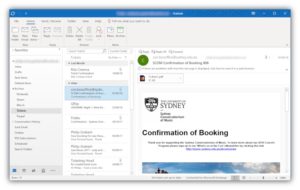I think this is a pretty standard career path for most boomers. The problem for most companies is what happens to the vast amount of knowledge that resides with this generation when they turn in their keys? How do you ensure that you are able to retain the knowledge that has been gained over the last 40 years? In my father’s case, his company implemented a digital strategy many years ago. They were essentially paperless before paperless was a thing. He would write sales notes on meetings and input other customer preferences that now reside on company servers. The data would then be searchable using an enterprise search solution, so anyone that replaces him will know that customer B is a Vegetarian and customer C is a huge Cornhuskers fan. The plan was that this would help his replacement to hit the ground running.
How big is the problem?
Studies have shown that there are 76 million baby boomers, those born between 1946 and 1964. They will be retiring over a 19 year period and simple math says that 4 million people will be retiring per year. That’s 11,000 people per day! So if you take my dad’s case and multiply that by 11,000 times every day for 19 years, US companies are facing a significant loss of knowledge. If we are looking at a 40 year career for each of them, this means that 440,000 years of experience are walking out the door, every day.
How can Enterprise Search Help?
The first step for corporations losing senior level employees (which I think most boomers probably are after so many years) is to make sure that they record what they know on a computer. The second step is to get a great enterprise search solution. With an enterprise search tool you’ll be able to search for and find anything, anywhere. This is important, because there is also a generation gap in the way that information is recorded and stored. My dad for example would store everything on his desktop. At any given time, he would have over 50 documents on his desktop screen. Everyone has their own system of organizing information and his worked for him. I wouldn’t be able to find anything in that mess without a proper enterprise search tool. There is also the fact that he has worn so many hats in the organization. Accounting data should be searchable by the accounting department and sales data by the sales department etc. This is very easy to do with an enterprise search solution.
It’s all about the details
It’s all great to think that you have all of the information you need from a retiring employee, but you probably don’t. The problem is that even boomers don’t realize what information they have saved in their heads. They brought in a young and very accomplished salesman to replace my dad. The problem for him was that he could look at all of the emails and data my dad had entered over the years, but couldn’t understand what he was reading. Inside jokes with clients, special preferences and conditions on deals, the customer network of who is who were all things hidden in the data (or in my dad’s head).
My dad ended up being re-hired as a consultant. In his first two weeks he took the new guy around to all of his customers to make introductions and give him inside information that would help him to be successful in his new job. The knowledge that my dad passed on during those first two weeks was quickly entered on the computer and now safely resides on the company servers. It can now be shared and searched with an enterprise search solution for all of the “new guys” that come on board.



Leave a Reply